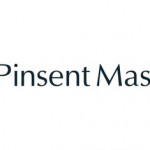South Africa’s Davis Committee Proposes Tax Reforms For SMEs

The Davis Tax Committee (DTC), which was set up by the South African Ministry of Finance in July 2013 to make recommendations for possible tax reforms, has issued an updated report for public comment, covering issues regarding the taxation of small and medium-sized enterprises (SMEs).
The DTC had issued an interim SME report at the beginning of 2014. In essence, the updated report, as before, covers the challenges facing SMEs in South Africa, especially their tax compliance burden, and includes reviews of income tax incentives for “small business corporations” (SBCs); of income tax incentives for “venture capital companies” to fund small businesses; of the alternative presumptive turnover tax system for “micro businesses;” and of the value added tax (VAT) requirements for SMEs.
The Ministry had already accepted the DTC’s recommendations relating to the compliance burden of SMEs. In particular, the micro business turnover tax regime, for businesses with an annual turnover of up to ZAR1m (USD93,300), will be amended to further reduce the tax burden on such enterprises.
It has been accepted that the requirements of the tax should be simplified, and its thresholds and tax rates should be adjusted. Turnover up to ZAR335,000 would not be taxed, to create taxable income approximate to the current personal tax threshold of ZAR70,700, and the non-taxable threshold would be revised annually to take account of personal tax threshold increases. The maximum 6 percent tax rate on income from ZAR750,000 to ZAR1m could also be reduced to 5 percent.
Consideration is also being given to replacing the graduated tax structure for SBCs (whose annual gross income do not exceed ZAR20m) with a refundable tax compliance credit, because the current system provides no relief to an SBC with no taxable income.
Amendments could also be made to the venture capital investor tax deduction, so as to create a separate tax incentive to encourage angel investors. This, it is proposed, may be achievable through the extension of the existing bad debt allowance to provide for the full write-off of failed investments in micro businesses.
Although it has noted a frustration with the South African VAT system by the SME sector relating to delays caused by onerous VAT registration requirements, the DTC believes that that the current ZAR1m compulsory VAT registration threshold compares favorably to international standards and should not be raised, and has also decided not to recommend that SMEs should be allowed to submit VAT returns on a biannual or even an annual basis.
With regard to complaints regarding delayed VAT refunds, the DTC suggests that stringent time limits could be placed on the South African Revenue Service concerning all tax refunds. However, it is to assess the wider implications of such a recommendation during its review of the VAT system later this year.
The closing date for comments on the updated report is August 31, 2014.
Source: tax-news





























